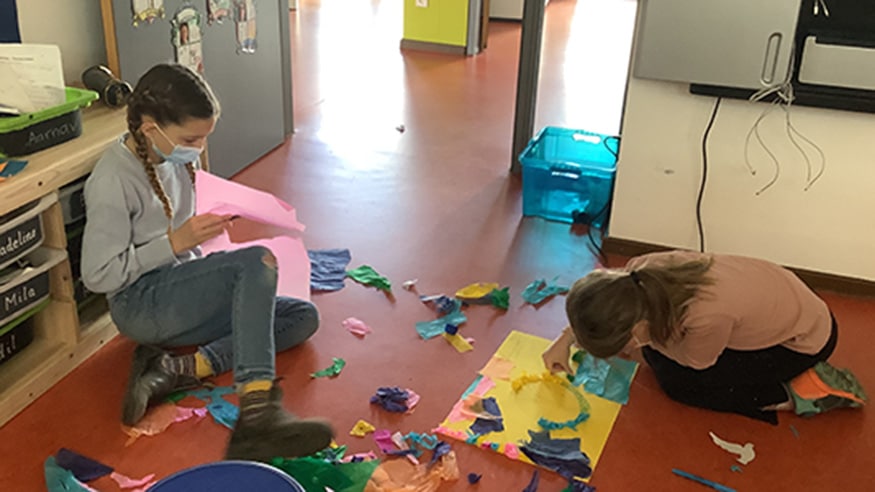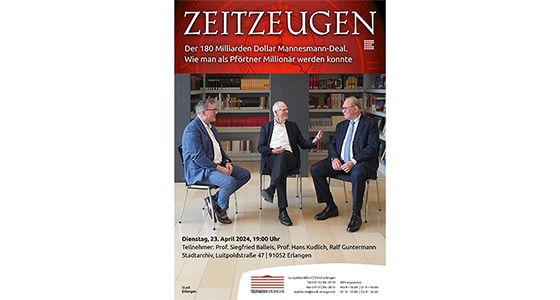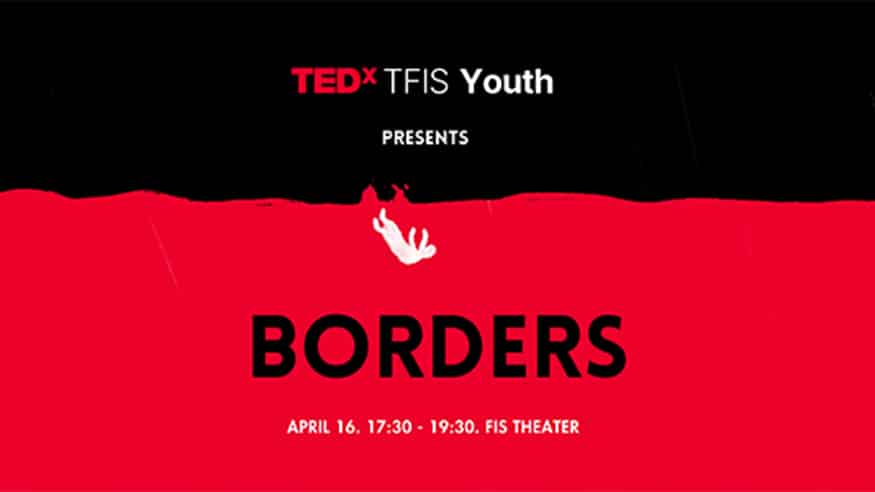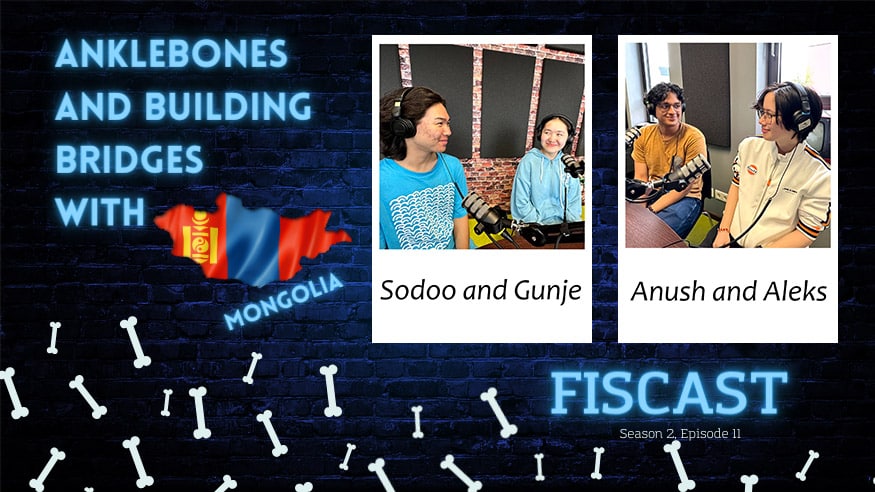As the crisis in Ukraine escalates, the 24-hour news coverage of the unfolding events can be a lot to process. The access to information can’t be separated from the barrage of graphic visuals and harrowing stories. At the FIS, our approach has been to encourage conversation and focus on next steps, without shielding our students from the grim reality of the situation.
Michelle Ang, Head of Wellbeing, offers insight into current dialogue practices at the school.
FIS: What has been our student community’s response to the current situation in Ukraine?
Michelle Ang: Students have been processing the events with their teachers during classes, with conversations ranging from looking to clarify a basic understanding of what is happening with some of our younger students, to looking to more clearly understand general underlying causes of violent conflict and making connections to other historical events with some of our older students. For example, Grade 4 has been creating peace-related posters in their German class (as pictured above). Across the school this week, students’ questions of “what is happening and why?” have quickly turned to questions of “what can we do to support those affected?,” with several students and staff setting plans to raise funds at school to donate to UNICEF and other local efforts.
FIS: What is the role of our staff in supporting students? How do we support our staff to feel comfortable with having a dialogue on this topic?
Michelle Ang: Students have been coming with a range of concerns and questions for clarification. As with any difficult topic, our role as educators has been to meet the students where they are at – to listen to what students’ understandings and emotions may be, and to open conversation at a developmentally appropriate level. Counselors have been checking in with homeroom teachers and Advisors to determine any potential supplemental needs in facilitating conversations, and all staff have access to specific resources for managing difficult conversations and addressing the topic of war with children and adolescents.
FIS: Is the context of an international school helpful when dealing with such an issue?
Michelle Ang: At the heart of our school’s aims, we strive to promote the growth of a culturally sensitive and compassionate community, and I think being a diverse community provides authentic opportunities for this development. Just before Fasching Break, Ms. Harth and Mr. Browne hosted a Secondary School virtual assembly to connect and reflect on what it means to be a member of the FIS community and a global citizen. Recognizing that we might all have different thoughts and feelings about the events unfolding in Ukraine, Mr. Browne set the example for being “slow to judge and quick to care.” These sentiments have been echoed through various interactions in the Primary School as well, as we look to support the wellbeing of all members of the community in this difficult time.





